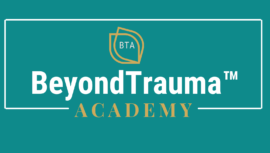SURVIVOR ACTION & REFORM PANEL (SARP)
Every survivor of violence deserves to be heard. Yet, too often, their voices are ignored or dismissed by the very systems meant to protect them.
The Survivor Action & Reform Panel (SARP) offers a structured, impactful platform where survivors of Domestic Violence (DV), Female Genital Mutilation (FGM), and Child Sexual Abuse (CSA) can raise their concerns, share their experiences, and advocate for systemic accountability and change.
This survivor-led initiative provides an alternative to MARAC, allowing survivors to take control of the conversation and ensure that policymakers, law enforcement, and statutory services hear directly from those most affected.
Our Vision
To create a survivor-led movement that influences policy, drives reform, and holds institutions accountable, ensuring a trauma-informed response across all statutory services.
- Survivor-Led Solutions: A direct channel for survivors to voice their concerns and propose actionable solutions.
- Systemic Reform: Working with policymakers and decision- makers to improve responses to survivors.
- Transparency & Accountability: Ensuring that commitments made by statutory bodies are tracked, monitored, and acted upon.
How It Works
Monthly Survivor-Led Forums
Safe, structured spaces for survivors to share their lived experiences. Identifying patterns of systemic failure, discrimination, or mistreatment in statutory services. Facilitated discussions to generate key recommendations for policy and training.
Quarterly Accountability Panels
Policymakers, police, and service representatives are invited to hear directly from survivors. Survivor representatives present key issues from previous forums. A structured approach focusing on transparency and solutions.
Survivor-Led Risk Identification & Escalation
Just like MARAC assesses risk for victims, SARP identifies risk created by statutory failures. Ensures cases of neglect, inaction, or poor policing are formally logged. Establishes a Risk & Accountability Coordinator (RAC) to track actions, deadlines, and institutional responses.
Survivor-Led Reform Reports
Each quarter, key concerns and systemic failures will be documented in a public Survivor-Led Reform Report. Reports will be submitted to policymakers to ensure survivors’ voices are reflected in training, legislation, and policy changes. Policy Tracker system to monitor commitments made by institutions and hold them accountable.
Guiding Principles:

For Survivors:
- Open to women affected by DV, FGM, and CSA
who want to drive change. - Confidentiality and mutual respect are required.
- No personal attacks—focus on systemic failures
and reforms. - Option to submit concerns anonymously.
For Policymakers & Statutory Representatives:
- Listen first before responding.
- Acknowledge survivor concerns and outline
concrete next steps. - Commit to action, transparency, and follow-ups.
For Co-Ordinators:
- Ensure discussions remain structured and
productive. - Maintain a trauma-informed approach.
- Document key concerns for use in reports and
policy tracking.
Why This Matters
The Current Crisis
Over 1 in 3 women worldwideexperience gender- based violence.Many report feeling ignored or retraumatized by statutory services.
Lack of Survivor-Led Reform
Policymakers rarely engage directly with survivors. This panel changes that.
Real Accountability
Survivors will no longer be silent. This platform ensures their voices lead change, not get lost in bureaucracy.



